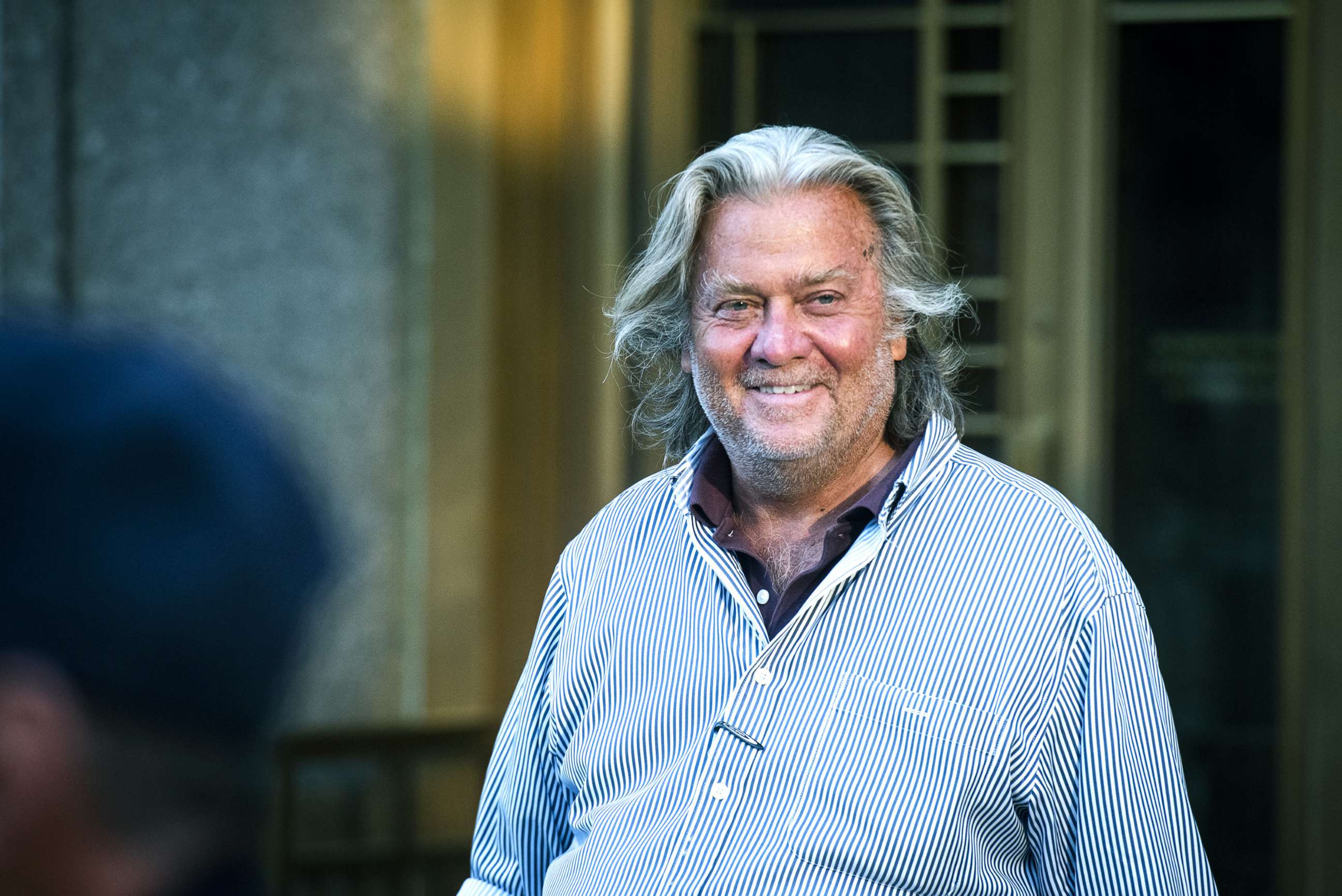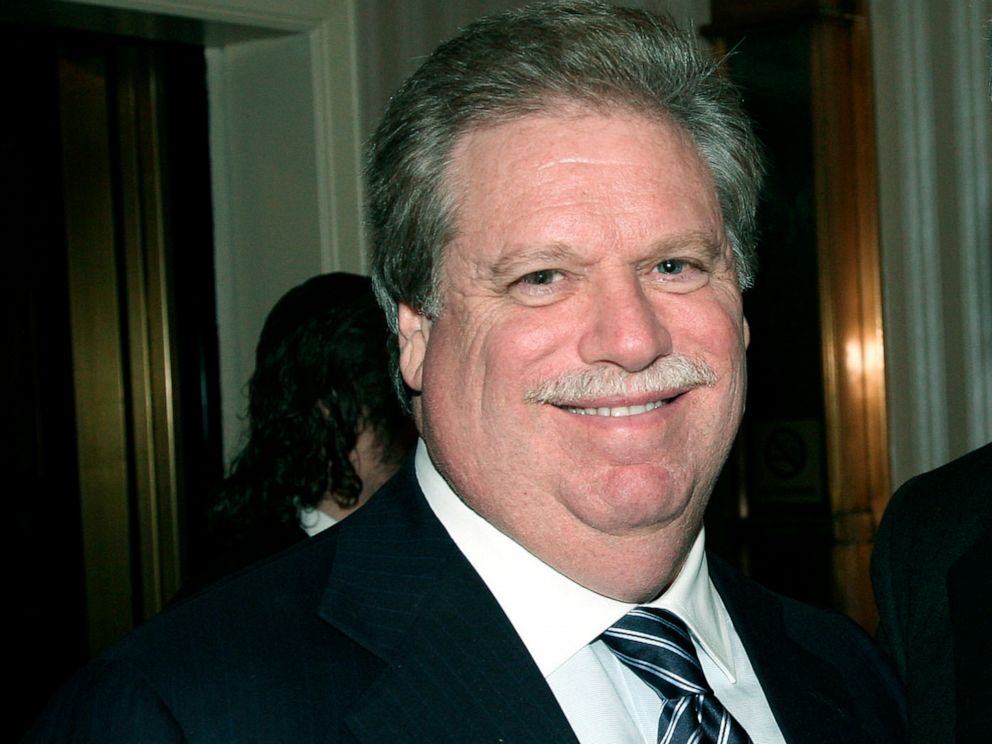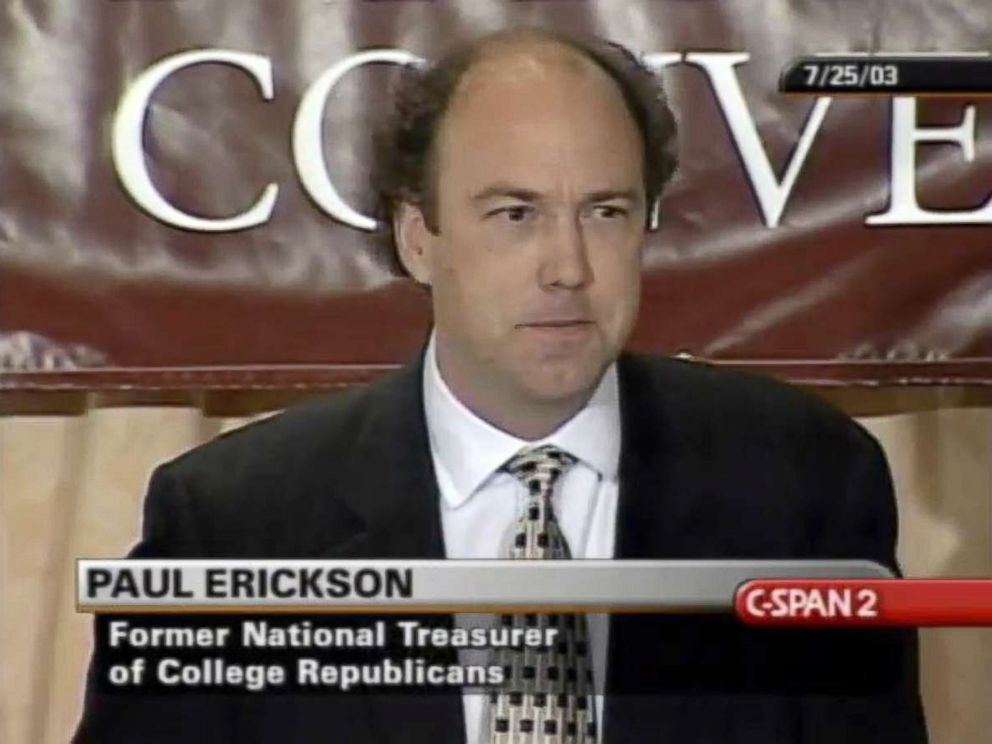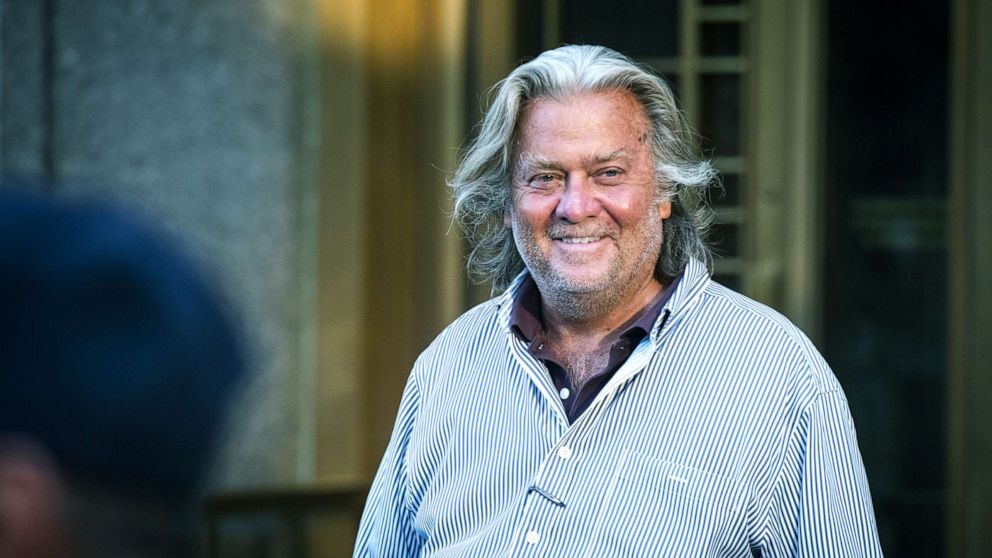Trump pardons Bannon, other allies on final night in office
In the waning hours of his time in office, President Donald Trump late Tuesday issued a final batch of pardons and commutations to a group that included former White House strategist Steve Bannon and two other longtime political allies, Elliott Broidy and Paul Erickson, in a move that will further solidify Trump's legacy of using his sweeping presidential powers to benefit his inner circle.
The latest batch of names, released by the White House on Trump's final night as president, granted 73 pardons and commuted all or part of the sentence of 70 additional individuals, after Trump had already issued several dozen such directives in recent months.
The most notable recipient is Bannon, who served as an executive at Breitbart before joining Trump's 2016 presidential campaign, then was indicted last August on charges tied to an alleged conspiracy to commit wire fraud and money laundering related to a crowdfunding effort to build a wall along the U.S.-Mexico border.
Bannon had been largely out of Trump's orbit until recently, when reports surfaced that he had been quietly contributing to the president's post-election strategy.
"Mr. Bannon has been an important leader in the conservative movement and is known for his political acumen," read a statement released by the White House late Tuesday.
Prosecutors have accused Bannon of defrauding hundreds of thousands of donors to the "We Build the Wall" fundraising campaign by falsely claiming that he and other organizers would not take a cut of any donated funds. Investigators allege that organizers of the group, including Bannon, were syphoning off at least $1 million for their own personal expenses, according to prosecutors.

Bannon has repeatedly claimed that his actions were only meant to support of the president -- but in an ironic twist, many of those who were allegedly defrauded were among the president's most ardent rank-and-file supporters. Since Bannon's indictment, Trump has sought to distance himself from his onetime top adviser.
For his part, Bannon called his arrest -- which occurred over the summer on a boat docked in Westport, Connecticut -- a "political hit job." He and his three co-defendants all pleaded not guilty, and his trial date had been set for May 24, 2021.
Broidy is a California financier who emerged as a top Trump fundraiser in 2016. He agreed to plead guilty in October to illegal lobbying for foreign interests as part of a massive federal investigation into the embezzlement of a Malaysian sovereign wealth fund.

Prosecutors were investigating Broidy for allegedly lobbying the Trump administration to drop their investigation into a man charged as the alleged mastermind of the $4.5 billion Malaysian fraud scheme. Broidy's advisers declined to comment when asked recently if he would seek a pardon from Trump.
Trump's pardon for Erickson, 59, comes as the seasoned Republican operative from South Dakota had begun serving an 84-month sentence in a Minnesota federal prison last year. He had pleaded guilty last year to defrauding investors in an oil venture after being indicted on a range of fraud charges.
The veteran conservative insider gained national attention earlier in the Trump presidency as the love interest of convicted Russian agent Maria Butina, a gun-toting Second Amendment activist who was nearly 30 years his junior. Erickson helped Butina gain access to a range of high-profile political figures as she worked as a clandestine foreign agent. Prosecutors called it a "duplicitous relationship," and Butina later pleaded guilty and was ultimately permitted to return home to Russia.
Erickson was never charged with any wrongdoing in Butina's case, and his attorney said at the time that Erickson "a good American" who "has never done anything to hurt our country and never would."

"Mr. Erickson's conviction was based off the Russian collusion hoax. After finding no grounds to charge him with any crimes with respect to connections with Russia, he was charged with a minor financial crime," read the White House statement. "This pardon helps right the wrongs of what has been revealed to be perhaps the greatest witch hunt in American History."
At least one recipient in Trump's final batch of pardons allegedly paid "tens of thousands of dollars" to the president's former lawyer for help securing it, according to The New York Times.
William T. Walters, who was convicted on insider trading charges, reportedly sought the help of Trump's former personal attorney, John Dowd, who "marketed himself" as someone who could use his access to the White House to secure the pardon for Walters and other convicted felons, according to the Times. Dowd denied that he had used his access to lobby for pardons.
Bannon, Broidy and Erickson join a long list of former Trump allies and supporters to have their legal travails squashed through Trump's intervention.
In the final months of his presidency, Trump had already issued pardons or commutations to dozens of members of his inner circle, including his former national security adviser Michael Flynn, his longtime friend Roger Stone, his former campaign chairman Paul Manafort, and his former campaign adviser George Papadopoulos.
Trump's use of the pardon for members of his inner circle has garnered backlash from critics. But past presidents have also taken advantage of sweeping powers to pardon friends and associates in their final weeks in office.
President George H.W. Bush, for example, issued pardons to several Reagan-era officials caught up in the Iran-Contra scandal prior to his departure from office. On his last day in office, President Bill Clinton granted clemency to Marc Rich, a fugitive businessman whose ex-wife was a longtime Clinton donor.




